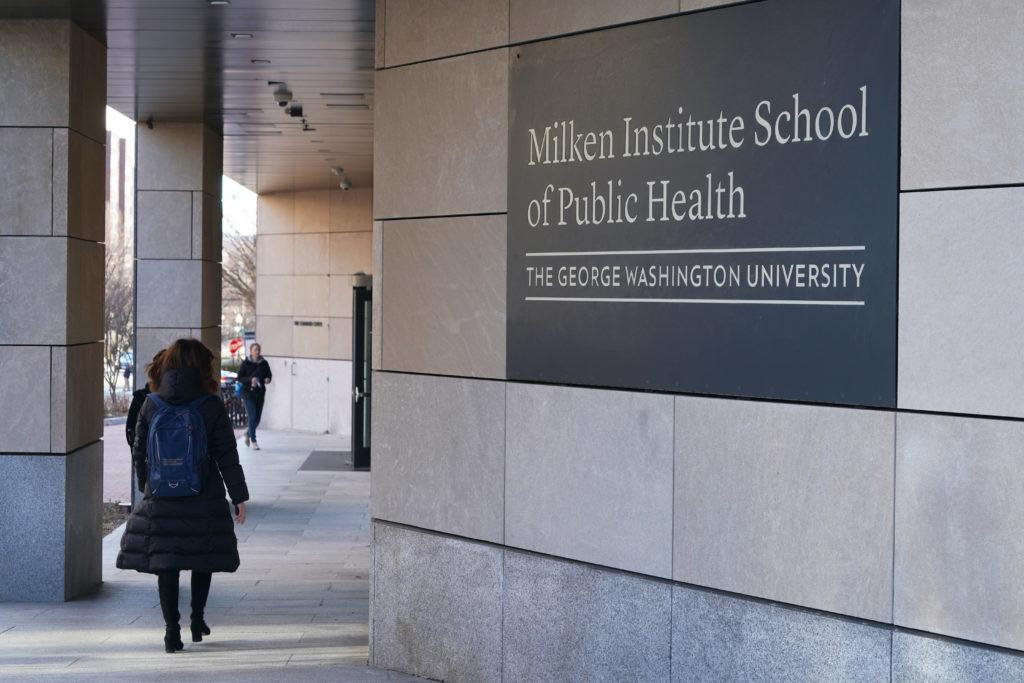A health equity-focused fellowship program received a $10.1 million grant to extend its research and academic operations through at least 2027, the Milken Institute School of Public Health announced last week.
The Atlantic Philanthropies – a private foundation that donates to institutions that advocate for health, social and political policies – awarded a grant to the Fitzhugh Mullan Institute for Health Workforce Equity to strengthen the Atlantic Fellows for Health Equity, a research fellowship that explores means to address global health care disparities. Health equity experts said the program provides students practical research and leadership skills needed to address health care disparities worldwide.
Guenevere Burke, an assistant professor of emergency medicine and the co-director of the fellowship program, said institute officials invest the funding in participating fellows’ “professional development.” She said the extended funding will allow officials to create a “global community” between the GW-based program, the other six Atlantic fellowship programs and the Atlantic Institute in Oxford, England.
“Health equity is a powerful and ambitious concept,” Burke said in an email. “This is not work that can be accomplished by one individual nor can it be done in one year of training. It requires the sustained effort of many individuals over time.”
The Atlantic Philanthropies established the fellowship program with an initial grant of $6 million in 2016, and it extended the program’s operation through 2026 with an additional $18 million in funding last August.
Applicants to the program must work in a health-related field and demonstrate “leadership potential” and commitment to advocating for health equity worldwide, according to the program’s website. The program accepts 10 U.S. and 10 international fellows per year, the website states.
The one-year fellowship is based at GW and will run from January to December 2020, according to the website.
Burke said the most recent funding boost will support an endowed professorship to lead the Mullan Institute and provides financial assistance to the Beyond Flexner Alliance, a U.S. organization that trains health professionals to equalize health care.
“The funding is anticipated to allow the program to continue operations through 2027, supporting a growing global community of fellows with an expanded presence at the Fitzhugh Mullan Institute for Health Workforce Equity,” Burke said.
Health equity experts said the fellowship program puts GW at the forefront of health equity research and scholarship and gives students a “dynamic” educational experience on global health care inequities.
Bethany Hedt-Gauthier, an associate professor of global health and social medicine at Harvard Medical School, said the fellowship will set GW apart from other institutions and encourage other universities to provide similar opportunities. She said fellowship programs are in high demand because the programs provide practical learning experiences in the health equity field.
“I think having funding that allows people to focus on the priority research questions, the most appropriate intervention, looking at where the gaps might be and how to best address those gaps is one of the best ways that we can address inequity in health access and health outcomes around the world,” Hedt-Gauthier said.
She added that participation in the fellowship program offers participants the opportunity to study how societal and political institutions contribute to health inequities, which will add more nuance to the fellows’ research and help them learn about “appropriate” interventions to fix health equity issues.
“It’s also about how you study it and making sure that we are all very sensitive to the political structures, the power dynamics and the broader social contracts within which we’re doing our work,” she said.
Danielle Jones, the center for diversity and health equity manager at the American Academy of Family Physicians, said the fellowship program grants participants the “knowledge, capacity and skills” to address the root causes of inequities.
Jones said the fellowship’s research outcomes should be “disseminated broadly” to allow other universities and organizations to develop programs and approaches that address issues that vulnerable communities face.
“Fellowships provide an opportunity for learners to translate the complex conceptual frameworks and theories they’ve learned in the classroom into actionable initiatives that can spur change in their organizations and/or communities,” she said in an email.





